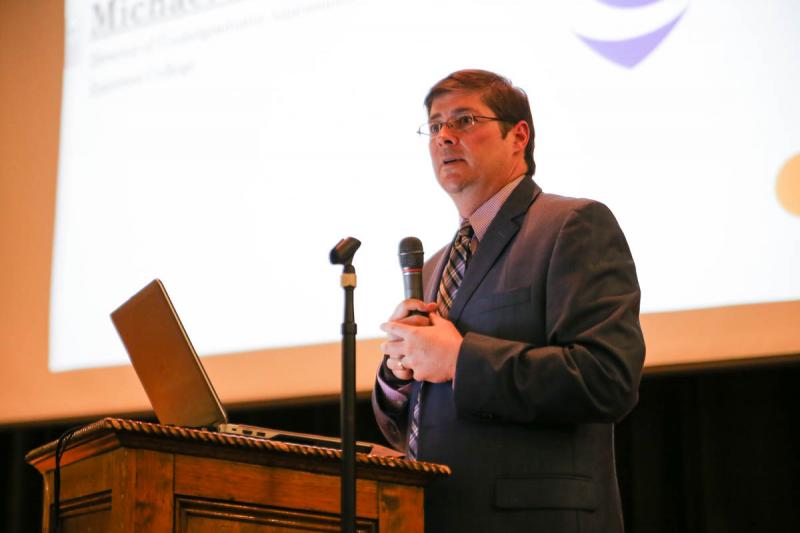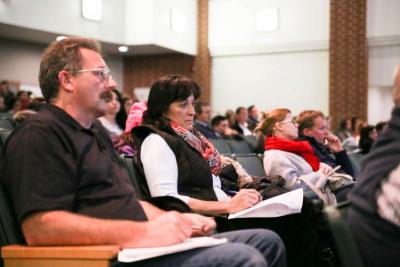College advice seminar held at Dartmouth High
Parents and students were treated to a college preparation talk at Dartmouth High School on Tuesday night.
Families gathered in the auditorium to learn about what they can do in their sophomore and junior years to begin preparing to go to college. Emerson College Director of Undergraduate Admissions Michael Lym was a speaker at the event. He shared his expertise in areas of test-taking, college essays and selecting the right schools to apply to.
His biggest piece of advice to students was “senior year counts.” Many students, after being accepted to college, tend to slack off for the rest of the year, feeling that there is no need to apply themselves.
“If you take time off… what’s going to happen that first year of college?” Lym asked the crowd.
Lym cautioned students against getting too comfortable and that drastic changes in grades may cause a school to revoke their acceptance.
Families often have difficulty choosing schools according to “best name brand versus best fit,” Lym said. Factors people should keep in mind when selecting 5 to 8 schools to apply to include distance, extra-curriculars, housing guarantees and cost.
“Don’t let the ranks cloud the search,” Lym said. “You want to find the best fit for you. A student who’s driven to success will find success wherever they go.”
Lym delineated the distinctions between standardized testing required by many colleges and universities, namely the SATs and ACTs. SATs are being revamped in the “New SATs,” which will debut at testing facilities in March. He advised students nervous about taking that test to wait until May or June to take it, when more literature and study guides will be available.
Fortunately for students, as many as 850 schools no longer require standardized testing, instead listing them as optional. Of those schools, 200 are top-tier. A complete list of schools that don’t require standardized testing can be found at fairtest.org.
Other important elements of the college application process help colleges get a more personal view of their potential students. College essays are used by institutions to “get to know their students,” Lym said. Inspirational people are often the topics of discussion in essays, but students often get carried away with talking about who inspires them, when essays should be treated as an opportunity to boast about oneself. Letters of recommendation, according to guidance counselor David Wright, should be provided by a teacher who knows the student very well, even if that class may not have been the student’s strongest course.
For more information on selecting colleges as well as free testing preparatory tools, visit collegeboard.com.
















